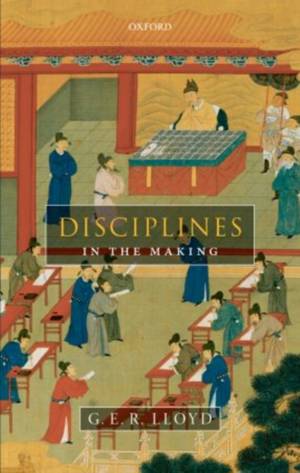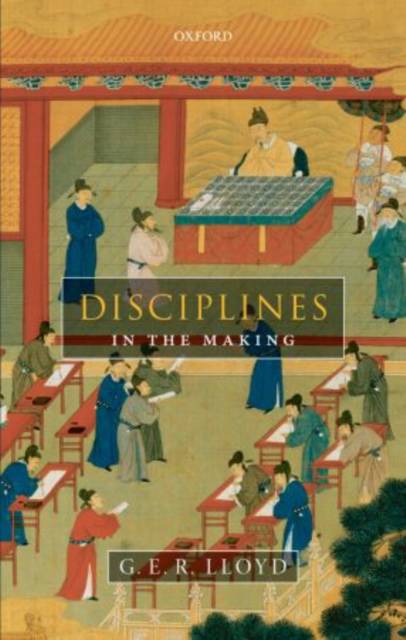
Je cadeautjes zeker op tijd in huis hebben voor de feestdagen? Kom langs in onze winkels en vind het perfecte geschenk!
- Afhalen na 1 uur in een winkel met voorraad
- Gratis thuislevering in België vanaf € 30
- Ruim aanbod met 7 miljoen producten
Je cadeautjes zeker op tijd in huis hebben voor de feestdagen? Kom langs in onze winkels en vind het perfecte geschenk!
- Afhalen na 1 uur in een winkel met voorraad
- Gratis thuislevering in België vanaf € 30
- Ruim aanbod met 7 miljoen producten
Zoeken
Disciplines in the Making
Cross-Cultural Perspectives on Elites, Learning, and Innovation
G. E. R. (Emeritus Professor, University of Cambridge) Lloyd
Paperback
€ 49,95
+ 99 punten
Omschrijving
We tend to assume that our map of the intellectual disciplines is valid cross-culturally. G. E. R. Lloyd challenges this in relation to eight main areas of human endeavour, namely philosophy, mathematics, history, medicine, art, law, religion, and science, by examining how the disciplines were conceived and developed in different times and places.
Specificaties
Betrokkenen
- Auteur(s):
- Uitgeverij:
Inhoud
- Aantal bladzijden:
- 224
Eigenschappen
- Productcode (EAN):
- 9780199694716
- Verschijningsdatum:
- 1/09/2011
- Uitvoering:
- Paperback
- Afmetingen:
- 141 mm x 214 mm
- Gewicht:
- 290 g

Alleen bij Standaard Boekhandel
+ 99 punten op je klantenkaart van Standaard Boekhandel
Beoordelingen
We publiceren alleen reviews die voldoen aan de voorwaarden voor reviews. Bekijk onze voorwaarden voor reviews.









